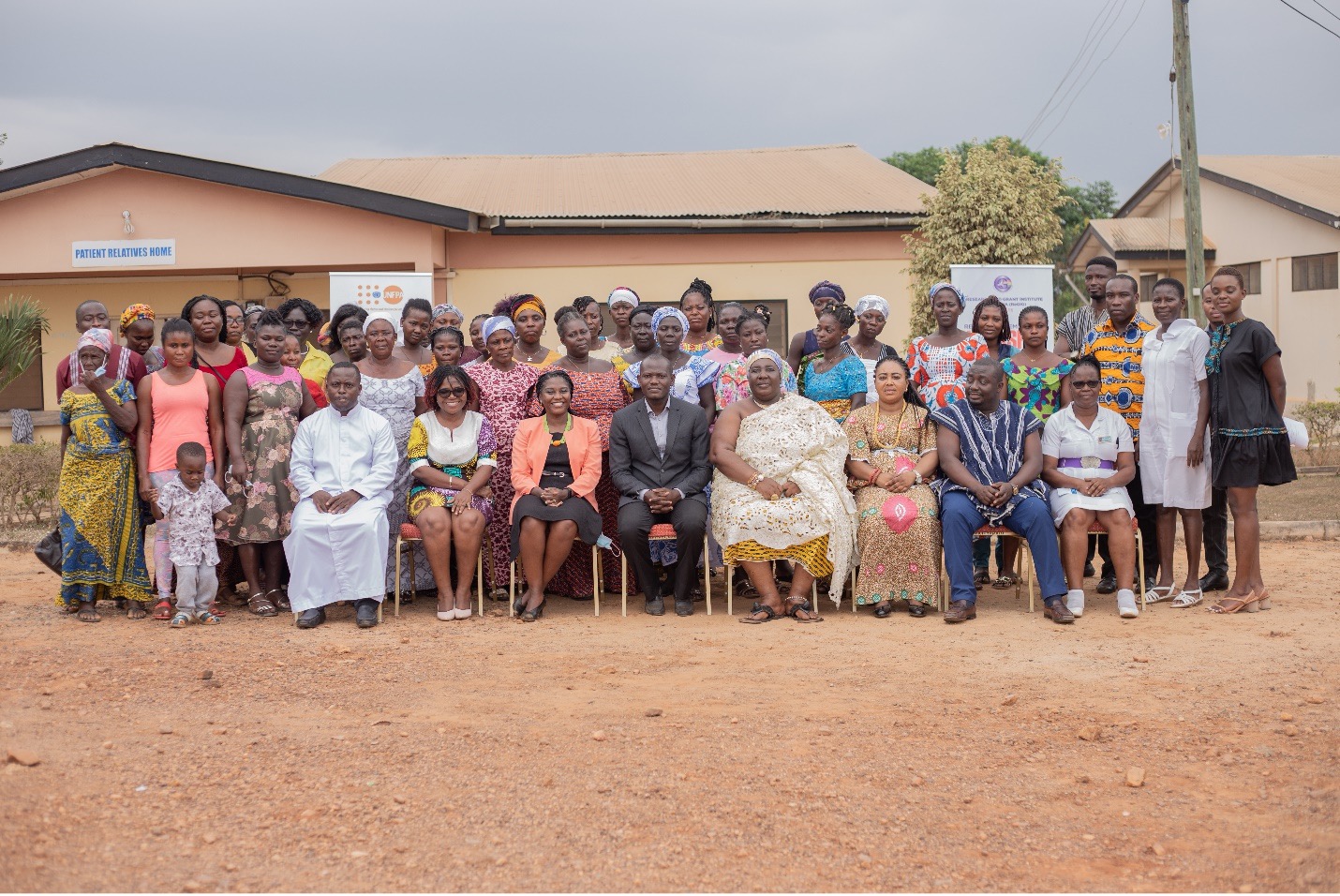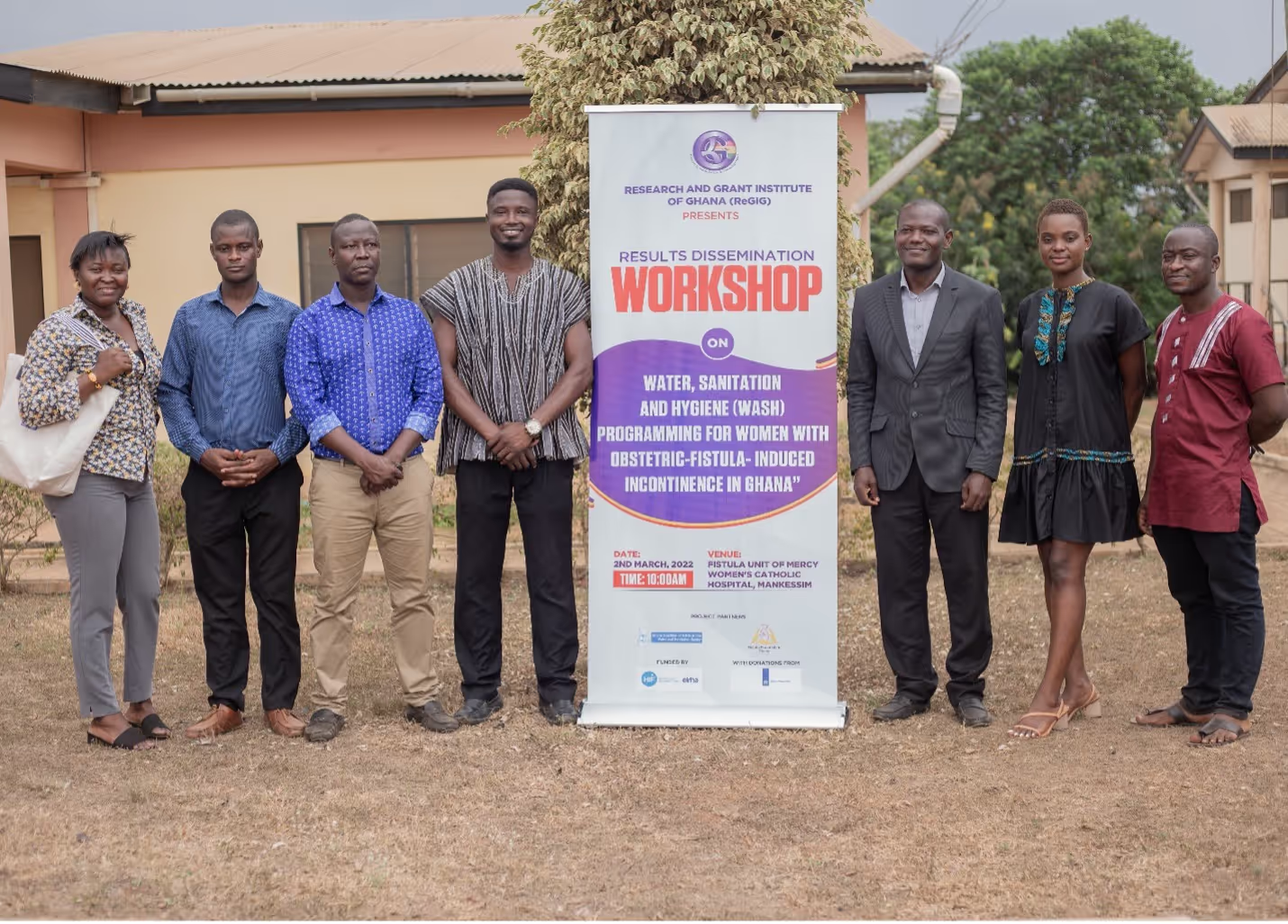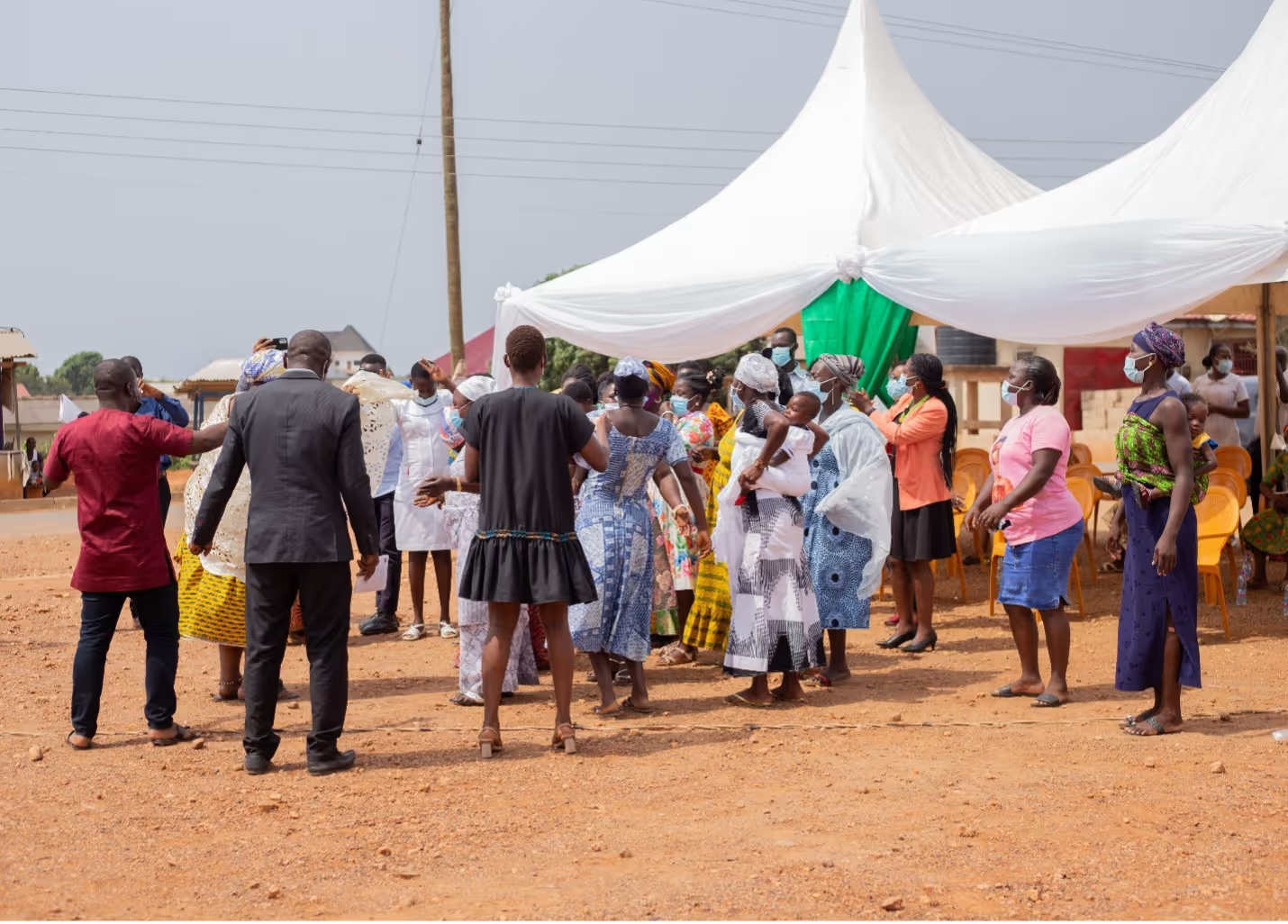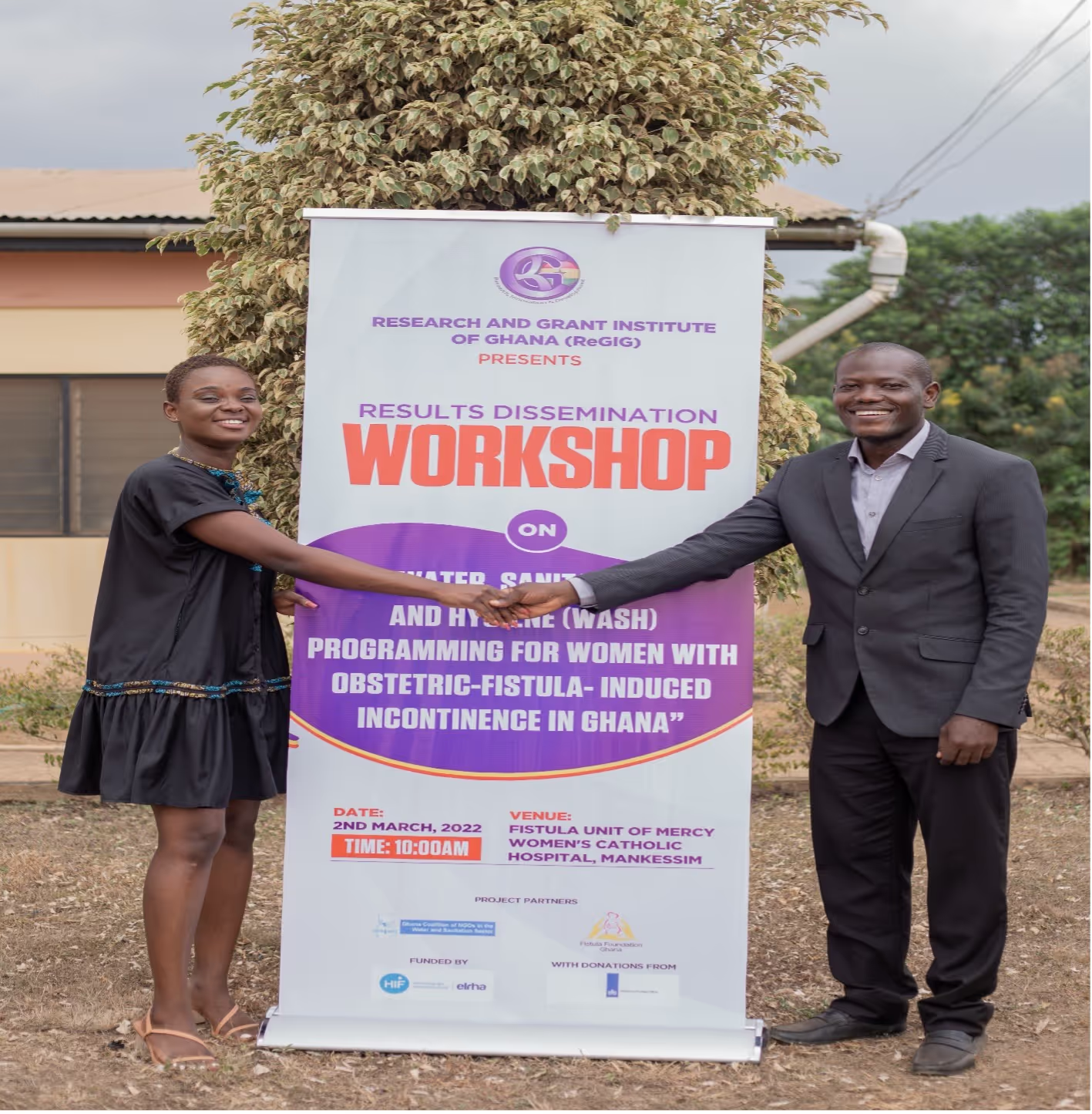A Spotlight on Disseminating Research Findings on Obstetric Fistula Induced Incontinence AND WASH Programming

The Research and Grants Institute of Ghana have recently completed a project focused on engaging women with obstetric fistula induced incontinence (OFII) in Ghana, to understand their lived experience and how they meet their needs, as well as investigating the existing programmes designed for that purpose. A core focus was ensuring the engagement of affected women at every stage of the research, including interpreting and presenting it back to key stakeholders. That took the form of a recent dissemination workshop- you can read the teams reflections on this process below.
It is a common practice to engage and share research findings with relevant stakeholders and participants who provided data for the research. The complexity and challenges involved in organizing a research dissemination workshop vary considerably based on salient factors such as the sensitivity of the topic investigated. Obstetric Fistula and incontinence are examples of conditions that are considered very sensitive in humanitarian settings. Obstetric fistula is a common complication of childbirth in which there is an opening between the vagina and other structures, such as the rectum and bladder. The main problem obstetric fistula is incontinence, which is involuntary discharge of urine and/or feaces through the vagina. Without proper and adequate water, sanitation and hygiene (WASH) services, incontinence is associated with urine and fecal odor, leading to shame, embarrassment, psychosocial distress, and economic challenges. People affected are ridiculed by the public, who attributes the condition to punishment for sins committed by the women. Within some communities, the condition can be seen as a punishment for sins committed by women, and therefore people affected are often ridiculed. Consequently, the women shy away from public gatherings and community engagement activities.

Navigating participant engagement hurdles
Once participants were assured of privacy and confidentiality, it was not difficult to secure their consent during the data collection phase. Data were collected in a setting deemed safe by the participants and agreed to by the research team. Interestingly, the majority nominated the hospital setting as the ideal and preferred environment for data collection. We considered the participants as “key resource” persons for the dissemination. We believe that stakeholders in the WASH and health sectors, government agencies involved in social protection and gender issues, and development partners such as UNFPA should hear from the participants themselves regarding their experiences, coping strategies and support needed. Therefore, in planning the dissemination workshop, it was considered a priority to provide a platform for the participants.
In order to best frame our dissemination activities, we had a discussion with a focal person known as the “fistula nurse”, owing to her superb and extraordinary working relationship with the participants, and the fistula unit of the hospital was chosen as the place to organize the stakeholder engagement and dissemination of results. The research team met to decide on the aspect of the findings that the event should focus on. The areas identified include:
- experiences accessing WASH services
- challenges and barriers accessing WASH services
- current incontinence management strategies
- measures to enhance WASH experiences.
For each thematic area, we identified two participants, who together with the research team reviewed the study findings and provided opportunities for the participants to rehearse and practice what they would say. This was part of measures of empowering affected participants to be involved in knowledge co-construction and problem-solving. Some participants were comfortable disclosing their status as individuals with incontinence due to obstetric fistula, whilst others were afraid to do so. Participants were advised to speak to the issues as if they were sharing the experiences of close friends or family members who had OFII. By so doing, we significantly eased their discomfort and protected the participants from being identified as victims of OFII. This arrangement was well executed on the day of dissemination.
Friendly Discussions and Advice
The dissemination workshop was largely successful. The participants were able to present as they had practiced and planned. Interestingly, community members and invited guests from government agencies and UNFPA joined the discussions. Experiences of OFII with respect to WASH was brought to fore, affirming the study findings. There were suggestions on how to improve the WASH experiences of women with OFII. The discussions were very friendly, with a lot of useful advice on how communities can support individuals with OFII. The queen mother of a local traditional council made several passionate appeals to community members to disabuse their minds and stop attributing OFII to a punishment women receive for their sins. Perhaps, this belief system contributes to the discrimination practices and non-acceptance of women with OFII by communities and sometimes family members. There was a sense of togetherness as the participants at the dissemination workshop danced to a local gospel song. This development created the impression that women with OFII needs the support of everyone in the community. The women with OFII appeared extremely happy as they talked freely with other invitees.

Lessons learned
Organizing a dissemination workshop on a sensitive topic such as OFII and involving victims of OFII as participants whose experiences must be heard by relevant stakeholders is a delicate activity. In this circumstance, traditional result dissemination strategies would be less helpful. Project team members must understand the local settings and develop context relevant strategies that would promote the involvement of research participants in a result dissemination workshop. The unconventional approach we used in our dissemination effort was designed to protect participants from harm while ensuring that their experiences and views are heard by those who matter in the WASH programming in Ghana.

Stay updated
Sign up for our newsletter to receive regular updates on resources, news, and insights like this. Don’t miss out on important information that can help you stay informed and engaged.
Related articles


.png)
Explore Elrha
Learn more about our mission, the organisations we support, and the resources we provide to drive research and innovation in humanitarian response.